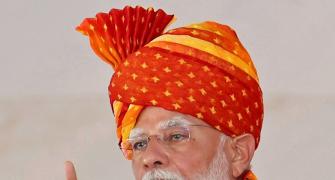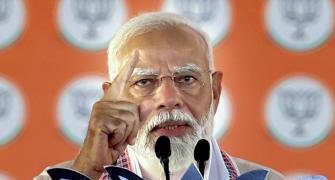Sabeer Bhatia lately has been talking up a storm about, of all things, the virtues of brick and mortar. Is the Hotmail cofounder, who sold his company to Microsoft in 1997 for $400 million, suffering from Internet fatigue? Not really. Although Bhatia, 37, has been trolling for the Next Big Cyberthing with little success since he cashed out, he still has his name on--and $10 million of personal funds in--a few startups.
But the Indian-born Bhatia, who lives in California, is now fired by an ambition to build the Silicon Valley of the future back in his homeland. Doesn't Bangalore, India's homegrown technology hot spot, already lay claim to that title? Bhatia, who grew up in Bangalore, points to the city's fraying infrastructure and traffic logjams. "It can take almost two hours to cover a mere 7-kilometer distance," he sighs.
Similar problems are creeping into other urban areas as the vibrant economy outpaces the Indian government's belated infrastructure buildout. Bhatia declares, "Cities are breaking down because they weren't planned in a holistic way. The country needs (one) to be built from scratch."
Slideshows:
Undiscovered hot corporate capitals
Richest tech titans
Thus, Nano City, a new township in the northern Indian state of Haryana. This is to be a private/public partnership between Bhatia and the state government, which approved the project in September. Bhatia's Nanoworks Developers will hold a majority stake in the finance authority for the joint venture.
The location is an 11,000-acre site three hours' drive from New Delhi. Nearby is the booming city of Chandigarh, where, coincidentally, Bhatia was born (and which is itself an architectural creation of Le Corbusier). "We couldn't have asked for a better location," he beams. Bhatia hopes to start acquiring land from local farmers this fall and to have all of the land in his possession by next March. Nothing has been bought yet, it should be noted.
Such a model is not exactly new to India. The Mahindra Group's Mahindra World City is an integrated township near Chennai in southern India developed in partnership with the state government of Tamil Nadu. It has attracted companies like Infosys that were looking to expand outside Bangalore.
Bhatia insists that what he's envisioned is more than just another urban agglomeration populated by low-cost engineers. He wants to develop Nano City into the "intellectual-property capital" of the world. Well, now! Bhatia is leveraging his connections to attract early settlers. He's targeting software development companies, pharmaceutical and biotech firms and leading educational institutions.
Slideshows:
The world's best big tech companies
Where the hottest high tech jobs pay best
On top of his wish list are companies like IBM and Genentech and American universities like Stanford (his alma mater), Carnegie Mellon and UC, Berkeley. "Once we get a few marquee names to come in, the others will follow," he argues.
Bhatia estimates that Nano City's development will involve up to $5 billion in investment. He has $500 million of funding already committed from a combination of Indian and international real estate funds and developers, Bhatia says, and he's contributing an undisclosed sum from his personal resources. Over the next 12 months he needs to raise a further $1 billion for the first phase of the project, which covers 5,000 acres.
His big selling point to investors: Bureaucratic interference, which tends to stall Indian public works, will be conspicuously absent from this project. Bhatia claims he has the full backing of the bureaucrats and total freedom in execution.
Slideshows:
Top ten richest Indians
India's tech billionaires
Nano City came about after a chance meeting between Bhatia and Pradeep Chaudhery, principal secretary for industry and information technology in the Haryana government. Haryana, benefiting from its proximity to New Delhi, had become a preferred low-cost destination for the back offices of global companies.
The state was looking to attract higher-end research work. Recalls Chaudhery, "We completely shared Sabeer's vision that wealth is generated from creating intellectual property. So why not create a world-class environment where our talented scientists and engineers, rather than going overseas, can work right here on next-generation technologies?"
Chaudhery hopes that Nano City will in time become a breeding ground for would-be billionaires. His goal is to have a population of 100,000 people and to generate between 25,000 and 50,000 high-level jobs within five years.
There are miles to go. Already India is seeing a mad rush to set up special economic zones--a less ambitious step-- throughout the country. Haryana itself has granted approval for one of the biggest--a 25,000-acre development by the Reliance group. These megaprojects are all clamoring for funds and chasing tenants. Moreover, land acquisition has become a thorny political issue amid concerns that farmers may not be adequately compensated in the buying frenzy.
Bhatia is unfazed: "It's a big idea and I'm crazy enough to do it. If I don't, someone else will."







